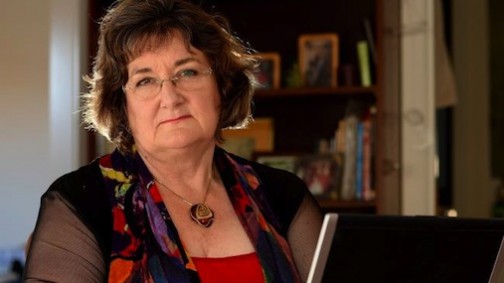Australia’s consumer watchdog has revealed that 2,620 Australians fell victim to online romance scams in 2015, most of them staged by Nigerian gangsters.The Australian Competition and Consumer Commission (ACCC) released the figures showing Australians were collectively swindled out of 16 million US dollars by scammers posing as would-be lovers last year.
However, ACCC’s deputy chair Delia Rickard believes that number may only represent one-tenth of Australia’s true financial losses to the morally-corrupt trade, with most victims too embarrassed to report – or admit – they had been set-up by a con artist.
“We hear people who borrow against their house and end up losing their home, people who access their super, people who borrow from friends and family and never able to pay them back, leading to a huge breakdown in relations,” Rickard told Fairfax Media.
“They are left devastated, all alone, broke, usually in debt,” Rickard said.
According to the data, women (43.5 per cent) were more likely to be caught up in the romantic scams than men (39 percent), while 17 percent of those surveyed did not disclose their gender.
The majority of victims were middle aged, between 45 to 55 years old.
One of the past victims of romantic scams was Jan Marshall, aged 62 from Melbourne. She fell in love with a scammer posing as a British engineer working in Dubai and transferred amounts totalling $260,000 in late 2012.
On top of using her savings and obtaining multiple credit cards, she drew money out of a self-managed super fund.
“I was not allowed to take money out of that fund. I have to pay tax on that money at the rate of 46.5 per cent, so I’ve ended up with an additional bill of over $75,000,” she said. “I can never pay that money,” she told the Sydney Morning Herald.
Ms Marshall, who now runs a scam survivor support group, met the scammer on website Plenty of Fish in the hope of finding a companion she could explore her new city with.
Despite communicating with him only via email, phone and text, she fell in love with ”Eamon Donegal Dubhlainn” and they became engaged.
It was only when she had exhausted her funds and had not heard from him for two days that she realised she had been scammed.
“These people have the skills to manipulate and make you fall in love. I was in shock, I couldn’t understand how this had happened to me,” she said.
The ACCC has its own taskforce designed to protect those the organization classes “potential victims” of romantic scams. The taskforce, known as the Scam Disruption Project, has sent 6,000 warning letters to these repeat victims, telling them to reconsider sending money to scamming hubs like Nigeria.
Rickard said the scammers create an intricate and compelling backstory to tug at the heartstrings of these victims before requesting money.
“Scammers are experts at preying on people’s weaknesses and will spend months and even years grooming victims and lowering their defenses,” Rickard said.
“Inevitably, the fraudster will spin a tall tale about why they suddenly need your financial help, ranging from medical emergencies to failed business ventures to needing to rebook flights to visit you,” she added.
One-third of Australia’s reported romance scams in 2015 occurred over social media, in particular, Facebook.
“The ACCC is looking to work with social media platforms to keep romance scammers off their sites and to help users recognize when they are being scammed,” she said.
Pmnewsnigeria………
This page has been viewed 414 times


























